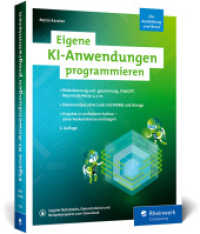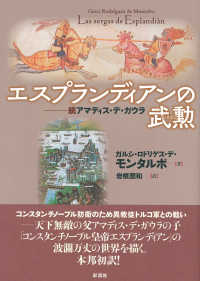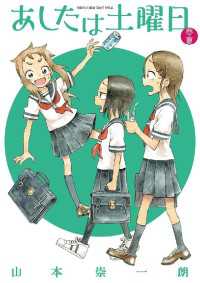- ホーム
- > 洋書
- > ドイツ書
- > Social Sciences, Jurisprudence & Economy
- > Education Science / Pedagogic
- > public education (school & university)
Full Description
The legacy of crimes committed during the Second World War in East Asia is still a stumbling block for reconciliation and trustful cultural relations between South Korea, China and Japan. The presentation of this issue in history school books is in the focus of a heated public and academic debate. This book written by historians and pedagogues from the three countries offers insight into the construction of historical narratives that are often nation-centered and foster exclusive identity patterns. However, the essays also reveal approaches to a more inclusive regional concept of East Asian history that puts the textbook debate into the wider framework of transitional justice.
Contents
Contents: Falk Pingel: Introduction - Un-suk Han: Japanese Colonial Domination and the Second World War - Politics of Remembrance in South Korea, 1945-2011 - Hiroto Ide: The Development of History Teaching in Korea - Sei-yoon Chang: The Current History Education Curriculum and the System of Textbook Authorization in Korea - Atsuko Kawakita: The Culture of Remembrance in Contemporary Japan: International Historical Issues in the Japanese Mass Media - Ritsu Ijuin: Japan's World History Education and the Significance of Sadao Nishijima's Theory of the East Asian World - Biao Yang: China in Japan's History Teaching - Yueqin Li: Teaching Chinese-Japanese Relations in History Classes of Chinese Secondary Schools - Ju-back Shin: The Second World War in World History Textbooks of Korea, China and Japan - Ping Bu: Historical Perceptions: Within the Border or beyond the Border? - Takahiro Kondo: Progress in Dialogues on History in East Asia and Future Perspectives - Jae-jeong Chung: Experiencing the Writing of a Joint History Textbook for Korean and Japanese Students - Kyung-seok Park: Remembering Wars: War Memorial Halls and Historical Disputes in Northeast Asia.








